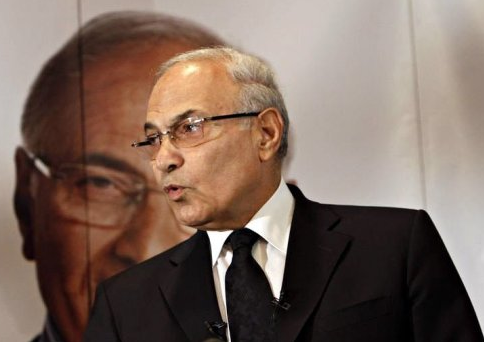
(AFP Photo)
The National Coalition to Support Legitimacy (NCSL) led on Friday several protests nationwide supporting the legitimacy of ousted president Mohamed Morsi and calling for his reinstatement.
Freedom and Justice Party (FJP) deputy chairman Essam Al-Erian announced that further pro-Morsi protests were scheduled for Monday. Al-Erian stated on his official Facebook page that decisions are made by popular rallies and peaceful protests.
“No person, no elite group and no military institution will impose their decision on the people,” Al-Erian said. “The restoration of legitimacy through reinstating the president, the constitution, the Shura Council and the cabinet is the only doable roadmap; it’s the roadmap proposed by President Mohamed Morsi.”
Thousands of Pro-Morsi protesters took to the streets after dusk in Cairo. They took off from several destinations, headed to the Rabaa Al-Adaweya sit-in in Nasr City, the Republican Guards Headquarters, the Ministry of Defence and the Itihadiya Palace in Heliopolis and the Cairo University sit-in in Giza.
Protesters supporting Morsi’s legitimacy also rallied in different governorates nationwide including Alexandria, Assiut and Aswan, reported state-run Al-Ahram. Protesters marched against what they claim is a military coup against their elected leader.
Tarek Al-Morsi, FJP spokesman, said that the march that took off from Al-Nour mosque to the Rabaa sit-in could not enter the sit-in due to its large size.
“The whole world has seen over 6 million Egyptians in the streets calling for Morsi’s reinstatement,” Al-Morsi said. He added that the protests did not only include Muslim Brotherhood and FJP members. “The entire nation, even those who took part in the coup against the president, has come to its senses and discovered the conspiracy being woven.”
Al-Morsi claimed that the numbers of protesters who took off against Morsi two weeks ago and called for his removal from power were amplified by the use of technology. He nevertheless admitted that masses of Egyptians protested calling for early presidential elections.
Pro-Morsi protesters blocked several vital roads in Cairo for hours such as the Salah Salem road in Heliopolis, Ramses Square downtown and the 6 October Bridge, which connects Cairo to Giza.
Al-Morsi criticised those who complained about the road blockages caused by the protesters. “Those who resent the people’s will represented in their protests under the pretext that it’s blocking roads, where were they throughout last year when protesters would block roads in order to stall progress and cause the failure of Morsi’s regime?”
The FJP spokesman applauded the civil nature of Friday’s protests. He stated none of the protesters used molotov cocktails or engaged in sexual assault or used violence.
Army jets dropped flyers on the sit-ins on Friday urging protesters to go home and promising that they will not be persecuted for their participation in the sit-in. The flyers denied that anyone questions the patriotism of pro-Morsi protesters and assured them that the “procedures” taken were by no means directed against them.
Ahmed Ali, spokesman of the armed forces, said that such flyers are dropped in Cairo as well as in Al-Arish. He said it aims to tell protesters that they can safely go home to their families and jobs.
“The message we want to send is that we are all Egyptians and the future is for everyone to share,” Ali said. “All must share in the political life regardless of their religious views.”
The Ministry of Interior released a statement on Thursday denying the arrest of any pro-Morsi protesters who exited the sit-in outside Cairo University or in Rabaa Al-Adaweya intersection.
“The ministry treats all citizens with full neutrality and doesn’t take their political affiliations into consideration,” the statement read.
Anti-Morsi protesters also demonstrated at the presidential palace and in Tahrir Square, where they shared Iftar on Friday evening.



